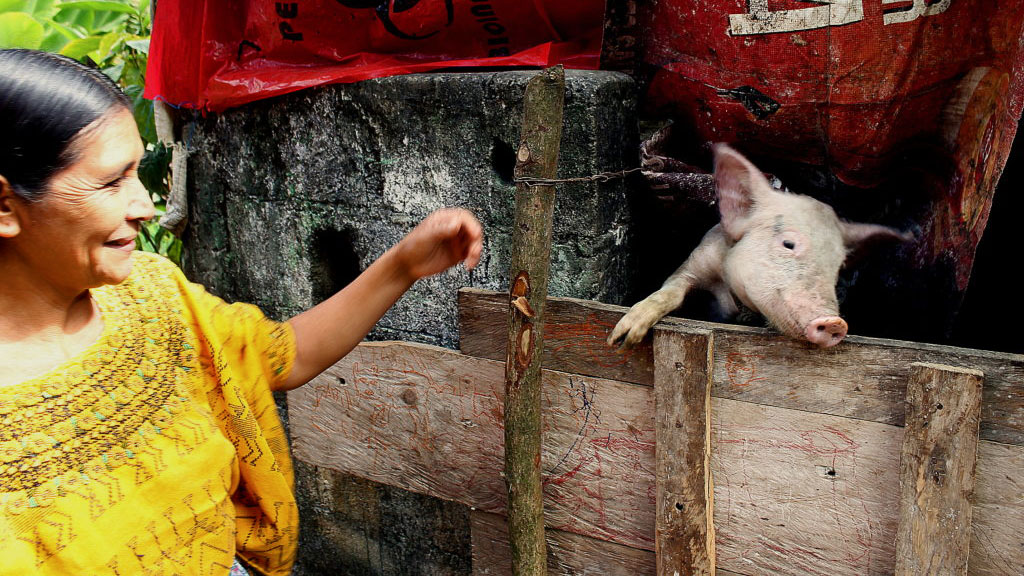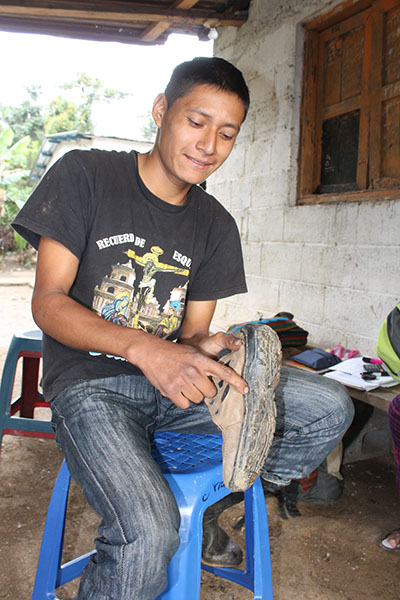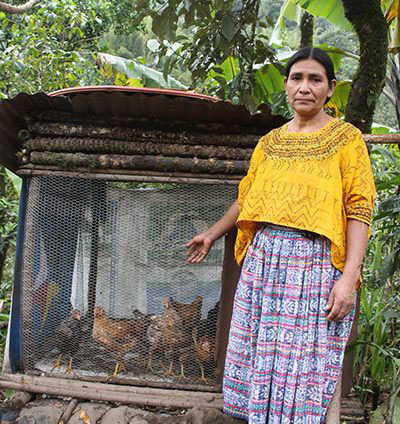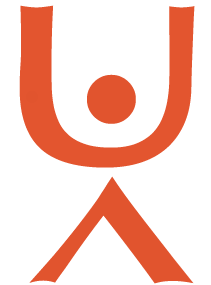Carmelina Xol Toc, 48, is a participant in Trickle Up’s project in Jolomche, Guatemala, focused on inclusion of people with disabilities. She lives with her husband, six children, and two granddaughters, caring for the family and weaving clothing to supplement their meager income.
Carmelina’s sons Edgar Amilcar, 19, and Hugo Cesar, 22, suffered from untreated epilepsy their entire lives. Hugo had seizures every day for the last four years, while Edgar had them once every two weeks or so. Because of their epilepsy, Edgar and Hugo didn’t often leave the house or interact with their neighbors. The other members of the community didn’t understand epilepsy and were frightened of them. Both also had to stop going to school after sixth grade because of health issues.
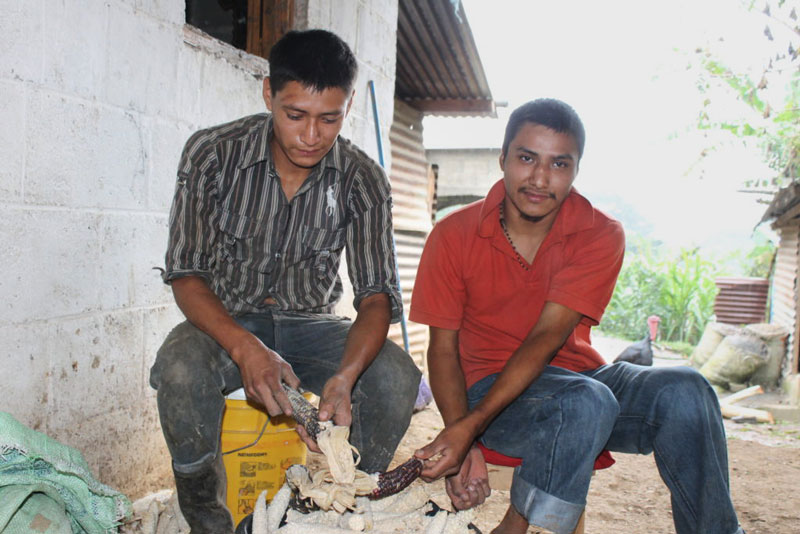
Because of the frequency his seizures, Hugo too weak to work outside the home. Edgar helped around the house or in neighboring fields, but always with someone else around in case he needed help. Another of Carmelina’s sons migrated to nearby farms to harvest coffee beans and do other agricultural wage labor to support the household’s income.
Still, the family didn’t have enough resources to cover their needs. When they managed to rent land to farm, the family could only grow enough corn for four months of food. To make ends meet, they looked for wage employment nearby or bought on credit in the nearest store. The family couldn’t afford anti-seizure medicine, so they waited and hoped the seizures would become less frequent.
With their $132 (Q1000) Trickle Up seed capital and $14 (Q111) of their own money, Carmelina’s family started several businesses including vegetable growing, shoe repair, and chicken farming.
They also invested in fertilizer, coriander seeds, cabbage, beans, and 10 chickens. A major difficulty for the family was finding land to grow their crops, since they don’t own any land. They used some of the money to rent land and started by planting vegetables. Carmelina said, “When we harvest the beans, we will sow the coriander. We didn’t plant it now because cilantro is at a low price in the market; I preferred to buy chickens first.”
At the same time, Edgar began a new shoe repair business at home. He taught himself how to repair shoes, and has been sewing his own shoes ever since. With no money to invest in supplies, he hadn’t been able to turn his passion into a vocation. Now he has the opportunity, and thinks it’s well adapted to his disability.
Hugo began attending trainings on the savings group’s social fund, and Edgar also attended some of the savings group meetings. Carmelina took advantage of her sons’ attendance to introduce them to the group and combat prejudice in the community by teaching the other women about epilepsy. At the meeting, Edgar spread the word about his new shoe repair business, so now their neighbors don’t have to go to the city to get shoes repaired.
Trickle Up and the municipality were able to organize medical visits to Cobán for both Edgar and Hugo.
Accompanied by their mother and two partner staff, Edgar and Hugo consulted an epilepsy expert, underwent examinations, and received the right medications. The municipality and local firefighters provided transportation for the appointments, and the program covered the costs of food, consultation fees, exams, and purchasing the first prescriptions.
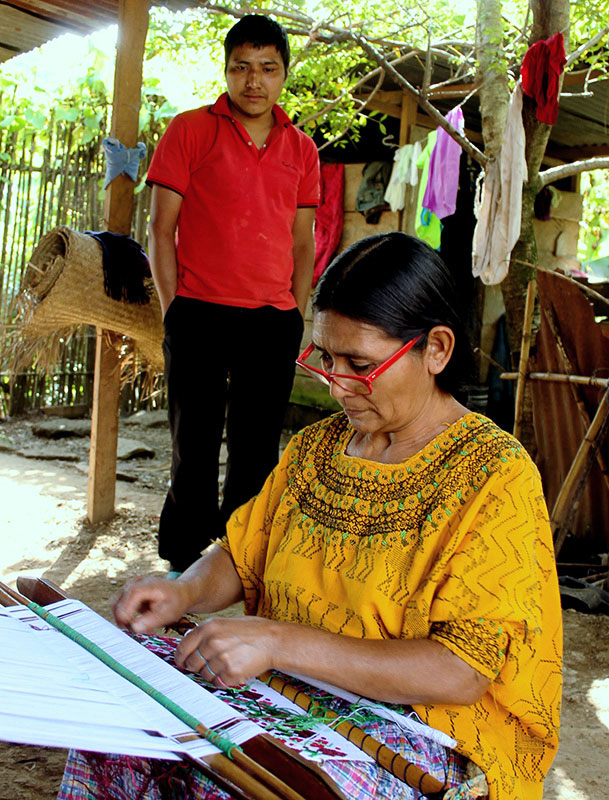
Six months later, Hugo has epileptic episodes once every few weeks rather than daily. Edgar, who just returned from a week of working in another region harvesting coffee, reports that he hasn’t had a seizure in the last month. Carmelina is thrilled her children are in better health.
Before, the family didn’t have the resources to pay for health examinations, but now “with the income from selling cabbage and corn and my savings, we are prioritizing the costs of traveling to the city to buy medicine,” Carmelina says.
The family now has several income-generating activities. Edgar is gradually becoming a well-known cobbler in the community. Carmelina and her daughter invested in more yarn to weave güipiles, and now they grow corn and beans, and raise chickens and a pig. Carmelina explains, “I have learned that it is better when I have the opportunity to have more supplies. As I sell my guipiles, I buy more supplies.”
In just one year, their working capital has grown to $365 (Q2,775) – a 150% increase over the initial investment.
In the first year, Carmelina had saved $132 (Q1,000), which she used to buy medicine, food, soap, and more weaving thread. In the second cycle, Carmelina’s daughter joined the savings group as well. In two months, they’ve already saved $26 (Q200) together. They can’t always both attend the savings group meetings, as they are still afraid to leave Hugo home alone because of his health, so they asked the group to allow them to take turns.
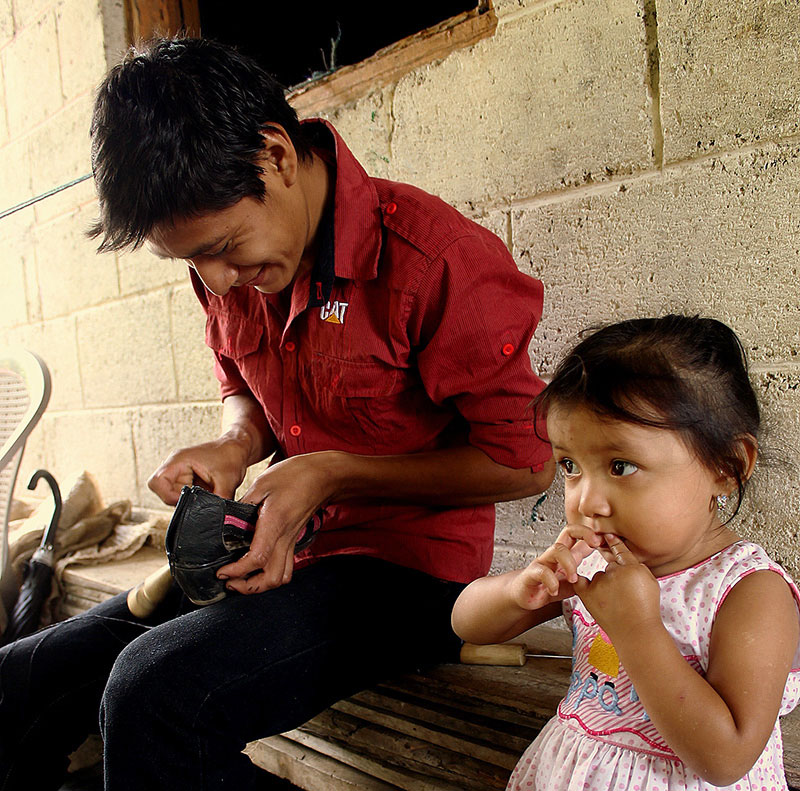
Hugo and Edgar want to continue their studies, but the nearest school has refused to admit them because of fears related to their epilepsy. As an alternative in the short term, the family learned about a school that teaches remotely, which could be a good compromise so the brothers can continue their education.
Since the beginning of the program, Carmelina’s family has seen considerable changes in their lives. Hugo and Edgar’s roles in the community continue to grow as their parents support them to leave the home and work more often. Together, they are growing the family’s businesses, eating better, and all have better access to healthcare.

